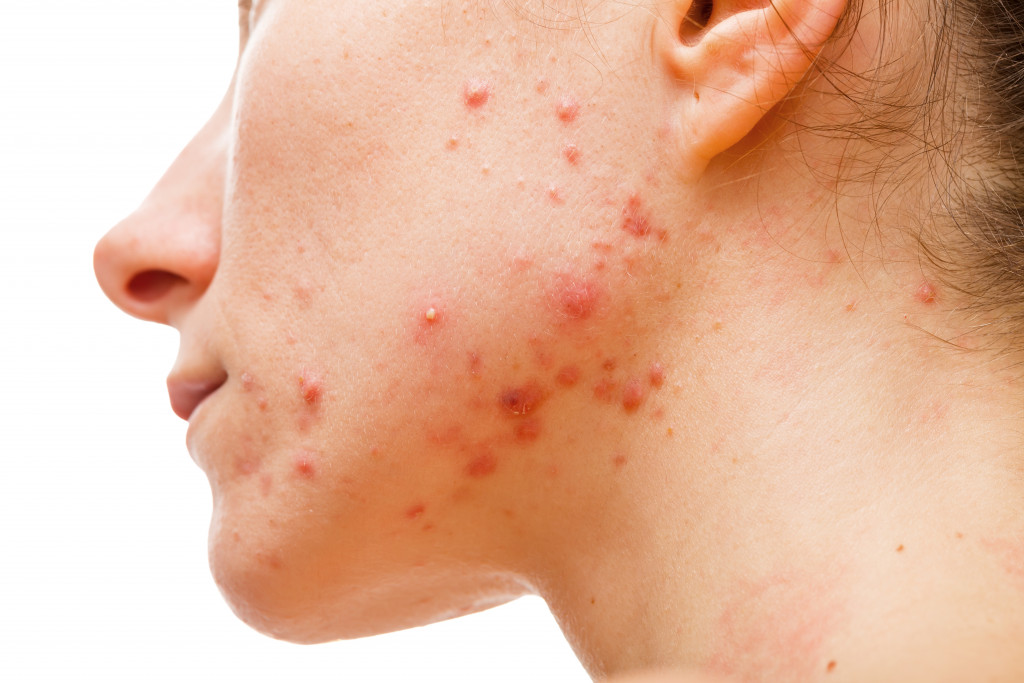As a teenager, you’re going through a lot of changes. Your body is developing, and you’re dealing with new things like hormones, emotions, and peer pressure. It’s normal to feel unsettled or off balance during this time. But it’s essential to keep an eye on your mental and physical health, as some common health issues can crop up during adolescence.
To get through teen life healthily, you need to know these common health issues you might face and how you can handle them:
Stress
As a teenager, you are going through a lot of changes. Your body is changing, you are trying to figure out who you are, and you are under pressure to do well in school and make friends. It’s no wonder that teenagers often feel stressed. But there are things you can do to manage your stress.
First, it’s important to identify the sources of your stress. Are you worried about school or tests? Do you feel like you don’t fit in with your peers? Once you know what’s causing your stress, you can start to develop a plan to deal with it. Maybe you need to talk to your teacher about how you’re feeling or join a club or sport to meet new people.
There are lots of ways to reduce stress, so find what works for you and stick with it.
Eating Disorders
If you’re a teenager, it’s natural to want to fit in. You might feel like you need to lose weight to look like everyone else. Or, you might think that people will like you more if you’re thinner. But these ideas are wrong. Eating disorders are serious illnesses and are much more likely to happen if you’re under a lot of pressure to be thin.
If you’re unsure whether you have an eating disorder, ask yourself these questions: Are you fixated on your weight or how you look? Do you diet or exercise obsessively? Do you miss meals or make yourself throw up after eating? Do you use laxatives or water pills to lose weight? If you answered yes to any of these questions, there’s a good chance you have an eating disorder. And it’s important to get help as soon as possible.
Anorexia, bulimia, and other eating disorders can be dangerous or even life-threatening. But with treatment, most people with eating disorders recover and go on to lead healthy lives. So if you think you have an eating disorder, talk to someone who can help, like a parent, doctor, counselor, or friend. The sooner you get help, the better.
Alcohol Use
Alcohol use can cause several health problems in teenagers. Short-term effects include memory problems, loss of coordination, and vomiting. Drinking alcohol can also lead to long-term health problems such as liver damage, cancer, and heart disease. In addition, alcohol abuse can lead to addiction and other mental health problems.
If you are a teenager drinking alcohol, it is important to be aware of the risks. Talk to your parents or a doctor about your drinking habits, and make sure to get help if you feel like you can’t control your consumption. Remember that you are still developing physically and mentally, so alcohol use can have a more pronounced effect on your health than it would on an adult.
Use caution and moderation when drinking, and always consult with a trusted adult if you have concerns about your alcohol use.
Tobacco Use
Tobacco use can cause serious health problems in teenagers. Studies have shown that smoking can damage your developing brain, including the parts of the brain that control attention, learning, mood, and impulse control. Cigarette smoking has also been linked to an increased risk of depression and anxiety in teenagers.
In addition to the risks to your mental health, smoking can also wreak havoc on your physical health. Tobacco use is a leading cause of lung cancer and increases your risk of developing other types of cancer, including mouth, throat, and stomach cancer. Smoking also increases your risk of developing heart disease and stroke. And if that wasn’t enough, smokers are more likely to develop osteoporosis, gum disease, and wrinkles.
So if you’re thinking about trying cigarettes, think again. The risks far outweigh the benefits. Quitting smoking is hard, but it’s worth it for your health. Talk to your doctor about ways to help you quit for good.
Acne

If you’re a teenager, chances are you’ve had to deal with acne at some point. This problem occurs when the skin’s pores become blocked, trapping oil and bacteria inside.
While acne can be embarrassing and inconvenient, treatments available can help clear up your skin. One popular treatment option is Accutane, a prescription medication that can effectively treat severe acne. However, Accutane can have some serious side effects, so it’s important to talk to your doctor about whether or not it’s right for you. There are also several Accutane substitutes or alternatives available that may be worth considering. These alternatives tend to be less harsh on the skin, making them a good choice for people seeking a more gentle treatment option. These substitutes also tend to be less expensive than Accutane.
No matter what route you choose, there are plenty of options available for clearing up your skin and getting rid of acne.
While teenagers face many health concerns, the most common ones include stress, eating disorders, alcohol and tobacco use, and acne. It’s important to be aware of these issues and understand how they can impact your teen life. The sooner problems are addressed, the easier they are to solve.

